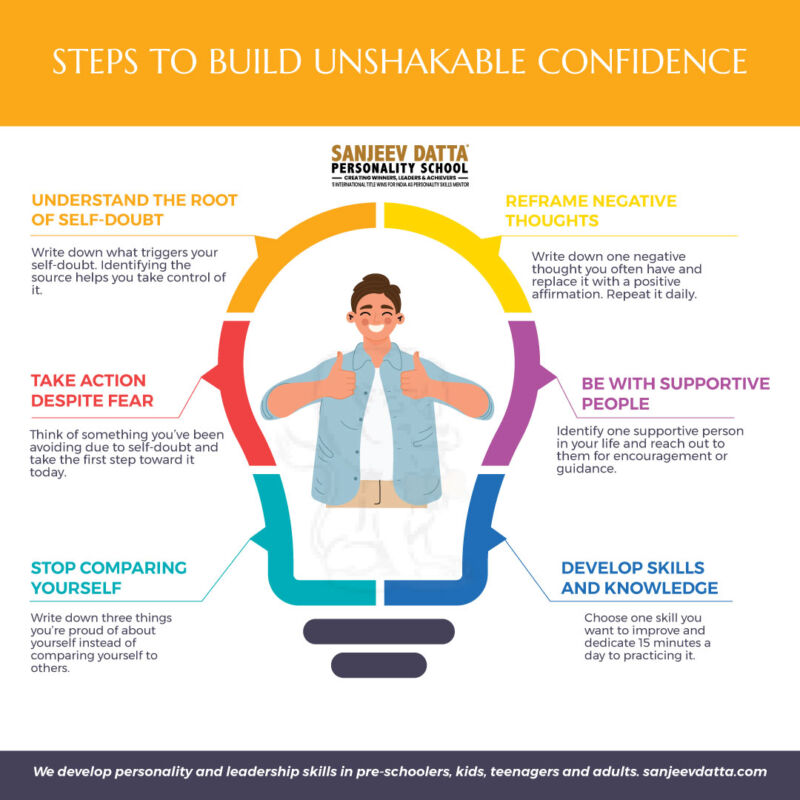Throughout human history, intelligence has often been equated with success, and risk-taking with bold leadership. But an intriguing question arises in the intersection of these two concepts: Are intelligent people risk averse? This question is more than philosophical—it touches the core of how human decision-making shapes personal growth, professional success, and societal innovation.
While society tends to celebrate audacious entrepreneurs and revolutionary thinkers, less attention is given to the quiet achievers—those who progress steadily, avoid unnecessary risks, and make measured decisions that secure long-term success. These individuals often exhibit signs of high intelligence, yet their cautious nature contradicts the stereotype of the risk-hungry visionary. So, what drives this behavior? And does higher intelligence inherently reduce the appetite for risk?
Understanding the connection between intelligence and risk aversion is essential in personal development. It sheds light on how individuals perceive opportunity, manage uncertainty, and shape their life paths. This article delves deep into psychological research, real-world behavior, and the underlying benefits of risk aversion to answer a compelling question: Are intelligent people risk averse?
1. Defining Intelligence: Beyond Academic Scores
The word “intelligence” often conjures images of academic achievements or high IQ scores. However, intelligence encompasses far more than problem-solving skills or standardized test performance. It is a multidimensional construct that includes:
- Analytical intelligence: Logical reasoning, abstract thinking, and problem-solving
- Emotional intelligence (EQ): Awareness, control, and expression of emotions; empathy and relationship management
- Practical intelligence: Adaptability in real-world scenarios
- Creative intelligence: The ability to innovate, imagine, and think outside the box
Each of these facets of intelligence contributes to how an individual perceives and responds to risk.
2. Risk Aversion Explained
Risk aversion refers to a preference for certainty and the avoidance of outcomes that are unknown or potentially harmful. Risk-averse individuals tend to:
- Choose secure paths over speculative ventures
- Evaluate multiple possible outcomes before making decisions
- Avoid rapid or emotionally driven actions
- Prefer long-term rewards over short-term gains
Contrary to common misconceptions, risk aversion is not synonymous with fear or passivity. It is often a conscious, intelligent strategy for minimizing loss and maximizing stability. In fact, in many areas of life—including health, finance, relationships, and career—risk aversion can be a sign of wisdom and maturity.

3. Intelligence and Decision-Making: The Psychological Link
A growing body of research supports a correlation between intelligence and risk assessment capabilities. Intelligent individuals tend to exhibit enhanced decision-making skills because they:
- Anticipate consequences more accurately
- Process complex variables more thoroughly
- Weigh probabilities and uncertainties logically
- Delay gratification in pursuit of long-term gains
This ability to forecast and analyze makes intelligent individuals more likely to avoid unnecessary risks. Their cautious behavior is not based on fear but on calculation.
A study published in Intelligence journal (Frey et al., 2017) found that individuals with higher cognitive ability were more likely to exhibit risk-averse behavior in controlled financial decision-making scenarios. This suggests that intelligence promotes more conservative strategies, particularly when stakes are high or outcomes are uncertain.
Visit: psychology of career stagnation
4. Emotional Intelligence: A Buffer Against Risk Impulses
Emotional intelligence plays a crucial role in moderating risk behavior. Individuals with high EQ understand their emotional triggers, manage anxiety, and avoid impulsive actions. When faced with risky decisions, they are more likely to:
- Reflect before responding
- Seek advice and input
- Consider social and emotional implications
- Choose harmony over conflict
Such individuals may still engage in risk-taking, but it tends to be strategic and well-thought-out, rather than impulsive. In professional and social contexts, high EQ often translates to low-risk interpersonal behavior, favoring diplomacy, consistency, and long-term relationship building over confrontation or aggressive tactics. For those seeking to enhance these traits, personality grooming classes offer proven techniques to harness risk aversion constructively, transforming caution into career-building confidence.

5. Practical Intelligence and Real-World Caution
Practical intelligence, often referred to as “street smarts,” involves navigating real-life situations with insight and adaptability. It promotes common sense and situational awareness. Risk-averse behavior, in this context, stems from:
- Experience with past failures or lessons
- Awareness of situational variables
- Realistic expectations and contingency planning
Rather than acting impulsively, practically intelligent people are more likely to adopt cautious approaches, particularly in unfamiliar environments. They recognize that a measured pace can lead to sustainable success and avoid the volatility that accompanies unnecessary risk.
6. Professional Life: Strategic Thinking Over Flashy Moves
In the workplace, intelligent individuals often choose environments that offer structure, predictability, and long-term development. Rather than pursuing high-risk, high-reward opportunities, they may favor careers where:
- Performance is based on skill and effort
- Career progression follows a clear path
- Risks are mitigated by planning and collaboration
While they may miss out on rapid ascents or unconventional rewards, their progress tends to be stable, resilient, and less prone to failure. This makes them highly valuable team members and leaders in industries that rely on consistency and accountability.

7. Benefits of Risk Aversion in Career Development
Risk aversion, when guided by intelligence, can be a catalyst for professional growth. Some of its key benefits include:
- Consistent advancement: Professionals avoid major setbacks that could derail progress
- Financial stability: Less impulsive job switching or risky business ventures means fewer financial disruptions
- Deeper expertise: Long-term commitment to a field allows individuals to gain specialized knowledge
- Strategic leadership: Risk-averse leaders often excel at crisis management, conflict resolution, and long-term planning
For those seeking to enhance these traits, personality development courses offer proven techniques to harness risk aversion constructively, transforming caution into career-building confidence.
8. Intelligent Risk-Taking: When Smart People Choose Risk
It is important to distinguish between blanket risk aversion and calculated risk-taking. Intelligent individuals are not immune to risk; they simply approach it differently. Instead of avoiding all risk, they:
- Research thoroughly before taking action
- Set clear objectives and timelines
- Test small-scale versions of risky ideas before full implementation
- Prepare exit strategies and fallback plans
This intelligent risk-taking enables innovation without recklessness. Many successful entrepreneurs, researchers, and leaders who appear to be risk-takers are calculated planners. Their decisions are backed by data, insight, and forethought.
9. The Myth of the “Fearless Genius”
Popular culture often portrays geniuses as reckless disruptors, risking it all to challenge norms or create revolutionary change. However, history shows that many intellectual giants practiced deliberate caution. Whether in business, science, or the arts, success often came through perseverance, nota spontaneous gamble.
Take, for example, the long years of development behind major scientific breakthroughs or the strategic career choices of top industry leaders. Their paths involved risk, yes—but risk tempered by intelligence, planning, and realism. Join our personality development course today to gain deeper self-awareness, smarter decision-making abilities, and a risk strategy tailored to your success journey.

10. Personality and Risk Profiles: The Bigger Picture
While intelligence influences risk preferences, it is not the only factor. Personality traits such as conscientiousness, openness to experience, and neuroticism also play a role. For instance:
- Conscientious individuals are more organized and thus more risk-averse
- Open individuals may be more willing to explore, despite potential dangers
- Anxious individuals might avoid risk due to fear rather than intelligence
This complex interplay means that intelligence must be viewed as one piece of a larger psychological puzzle.
11. Education and Awareness: Tools to Balance Risk and Reason
Education fosters awareness, and awareness fuels better choices. Personality development programs can help individuals:
- Understand their risk profiles
- Cultivate emotional control
- Build decision-making frameworks
- Align risk tolerance with career goals
When individuals are trained to assess their strengths and limitations accurately, they are better equipped to navigate both risk and opportunity.
Visit: habit stacking for personal growth
Conclusion: Final Thoughts on—Are Intelligent People Risk Averse?
So, are intelligent people risk averse? The answer lies not in a simple yes or no, but in understanding the deeper dynamics of intelligence and human behavior. Intelligence, in its various forms, equips individuals to evaluate risk more thoroughly, avoid impulsive actions, and choose strategic paths. While this may manifest as risk aversion, it is more accurately described as risk intelligence—the ability to take the right risks at the right time.
The benefits of risk aversion are particularly significant in the modern world: stable careers, financial security, mental well-being, and long-term success. Intelligent individuals who harness this trait wisely create lives defined not by chaotic leaps, but by thoughtful, intentional progress.
To cultivate this balance of courage and caution, structured personality development training provides essential tools for mastering the art of decision-making.


